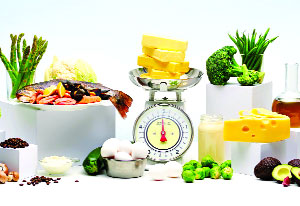Keto diet may prevent cognitive decline
Following a ketogenic diet — a high-fat, low-carbohydrate regime — may boost cognitive abilities, a study in mice suggests. Researchers from University of Kentucky in the US showed that the gut and the brain are more closely connected than we once thought, and in fact the health of one can affect the other. “Neurovascular integrity, including cerebral blood flow and blood-brain barrier function, plays a major role in cognitive ability,” said Ai-Ling Lin, from University of Kentucky. “Recent science has suggested that neurovascular integrity might be regulated by the bacteria in the gut, so we set out to see whether the Ketogenic Diet enhanced brain vascular function and reduced neurodegeneration risk in young healthy mice,” said Lin. The Ketogenic Diet has previously shown positive effects for patients with other neurological disorders, including epilepsy, Parkinson’s disease, and autism.
Pain disruption therapy for backache
People with treatment-resistant back pain may get significant and lasting relief with dorsal root ganglion (DRG) stimulation therapy, an innovative treatment that short-circuits pain, suggests a study. Chronic pain — pain that lasts three months or more — occurs when nerves continue to send signals to the brain after the original source of the pain is gone. An alternative to spinal cord stimulation, DRG stimulation disrupts pain signals by specifically targeting the nerves responsible for the pain. This may avoid unnecessary stimulation of nerve fibers that come from non-painful areas, which may occur with spinal cord stimulation. It also helps to meet the need for non-drug pain treatments in select patients. “People who had DRG stimulation reported significant improvement in pain even after a year, which is notable,” said lead author.
PPD linked to mom's pain after childbirth
A recent study has shown that postpartum depression is linked to mother's pain after childbirth. Previous researches had demonstrated the pain associated with giving birth may increase the risk of postpartum depression but has not specified which part of the labor process (eg before, during or after delivery) may be the source of the problem. This is the first study to differentiate postpartum pain from labour and delivery pain and identify it as a significant risk factor for postpartum depression. “For many years, we have been concerned about how to manage labour pain, but recovery pain after labour and delivery often is overlooked,” said Jie Zhou, MD, MBA, lead author of the study and assistant professor of anesthesia at Brigham and Women's Hospital and Harvard Medical School, Boston. “Our research suggests we need to focus more on helping new mothers manage pain after the baby is born.”


























